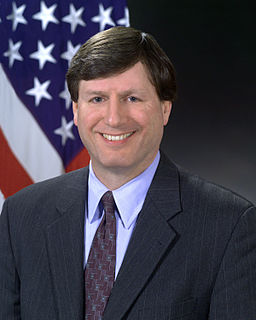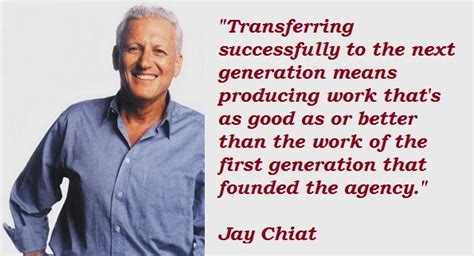Top 41 Databases Quotes & Sayings
Explore popular Databases quotes.
Last updated on April 16, 2025.
Every air traveler entering Mexico is vetted against US databases. The air passenger screening system Mexico has in place involves these checks against US national security and criminal data bases. There are plainclothes US officers stationed at airports in Mexico working with Mexican immigration officials to protect the United States. This joint security program has been in place for at least six years and is a huge asset.
The promoters of big data would like us to believe that behind the lines of code and vast databases lie objective and universal insights into patterns of human behavior, be it consumer spending, criminal or terrorist acts, healthy habits, or employee productivity. But many big-data evangelists avoid taking a hard look at the weaknesses.
Because there are now online databases of federally funded research, and these databases are searchable by keyword, sex researchers have to be careful how they title their projects. It's become a simple matter, for those who are so inclined, to find and target researchers whose work they object to on religious grounds.
We need to take information, wherever it is stored, make our copies and share them with the world. We need to take stuff that's out of copyright and add it to the archive. We need to buy secret databases and put them on the Web. We need to download scientific journals and upload them to file sharing networks... With enough of us, around the world, we’ll not just send a strong message opposing the privatization of knowledge - we’ll make it a thing of the past. Will you join us?
It's fascinating as we continue to innovate and lead the way in both the application space and the database space. In the very beginning, people said you couldn't make relational databases fast enough to be commercially viable. I thought we could, and we were the first to do it. But we took tremendous abuse until IBM said, "Oh yeah, this stuff is good."
Ionizing radiation may well be the most important single cause of cancer, birth defects, and genetic disorders... The stakes for human health are very, very high in radiation matters. It is essential that people take no chance that conflict-of-interest is producing radiation databases which...cannot be trusted.
We get information in the mail, the regular postal mail, encrypted or not, vet it like a regular news organization, format it - which is sometimes something that's quite hard to do, when you're talking about giant databases of information - release it to the public and then defend ourselves against the inevitable legal and political attacks.
In baseball, you can do something poorly and still get credit. A pitcher could throw a bad ball, the batter hit a screaming line drive, and an outfielder make a fantastic diving catch. Yet, when you look at historical databases, 80% of the time when a ball is struck with that trajectory and velocity, it is a hit.
Now companies tend to mine gigantic databases for insights into what might happen six months from now. That might always be valuable, but there's a different kind of value - and a competitive edge - in processing ongoing streams of data through a software model that can quickly and constantly make predictions about, say, whether a certain customer is going to defect, or an aircraft is going to run into trouble.
Some argue that even physical databases were open to abuse and fake passports or driving licenses were fairly common. But technology, coupled with poor security systems, can ruin innocent victims lives by wiping out their bank balances or investments, or by misusing their identity for dubious deals.








































